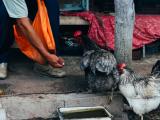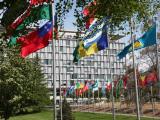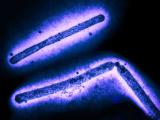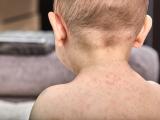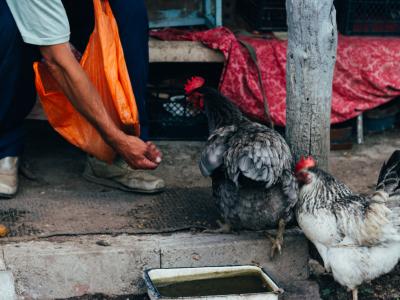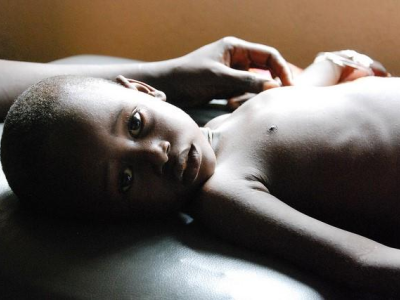May 16, 2007 (CIDRAP News) – The World Health Organization (WHO) today recognized 15 H5N1 avian influenza cases from Indonesia dating back to late January, a few weeks after the country stopped sending H5N1 virus samples to the WHO as a protest against developing nations' lack of equal access to pandemic vaccines.
The 15 cases now recognized by the WHO include 13 fatal ones, raising the WHO count for Indonesia to 96 cases with 76 deaths. The announcement pushes Indonesia past Vietnam, with 93 cases and 42 deaths, as the country hardest hit by avian flu and boosts the global H5N1 count to 306 cases with 185 deaths.
The WHO's move came the day after Indonesia's health minister, Siti Fadilah Supari, announced at the World Health Assembly in Geneva that the country had resumed sending virus samples to the WHO. But it was not clear if there was a connection between Supari's announcement and the WHO action.
In its statement today, the WHO said it had previously required external confirmation of lab results from Indonesia, but after a formal on-site assessment of the national laboratory's capacity to diagnose H5 avian flu viruses, the agency would now accept the country's results without outside confirmation. The WHO said Indonesia's national laboratory tests avian flu samples in collaboration with the Eijkman Institute for Molecular Biology, a Jakarta-based research facility that is closely aligned with the government's research and technology ministry.
The WHO's case confirmations apparently are based on previous results from Indonesia's national laboratory, not on samples that Indonesia said it sent to the WHO collaborating laboratory in Tokyo. The WHO statement does not mention testing of any of the samples recently supplied by Indonesia. Two media reports today, by Canadian Press (CP) and New Scientist, said Indonesia sent only three samples.
Gregory Hartl, a WHO spokesperson, told CIDRAP News by e-mail that from now on the WHO would recognize the cases Indonesia confirms because its lab is now accredited, signaling that future WHO confirmation of Indonesian cases will not be conditioned on sharing of virus samples.
The WHO appears to have confirmed nearly all the H5N1 cases reported by Indonesian health officials since late January. The one apparent exception is the case of a 9-year-old boy who, according to a Jakarta Post report at the time, died in a hospital in Garut, West Java, on Feb 11. Few details about his case were available.
Though the lapse in the WHO's reporting of H5N1 cases from Indonesia appears to be over, the dispute over virus sharing apparently is not. Indonesian officials told experts meeting in Geneva that they would not send more samples until more progress is made on a new agreement to ensure that developing nations receive fair access to vaccines made from the samples they supply, New Scientist reported today.
Yesterday, 17 developing countries, including Indonesia, introduced a resolution at the World Health Assembly demanding equitable access to vaccines, drugs, and other medical products derived from H5N1 samples the countries provide, Reuters reported. The resolution also would require researchers and vaccine developers to seek informed consent from countries that contribute the viruses before using them.
Sharing of avian flu virus samples is vital to the research community for developing pandemic vaccines and monitoring the virus's ability to infect humans, global spread, and resistance to drugs.
WHO Director-General Margaret Chan, at a technical briefing at the Geneva meeting today, said the WHO recognizes the concerns of developing countries and is taking several actions to ensure that they have access to affordable pandemic vaccines, Reuters reported.
However, she used strong words in a plea for unrestricted virus sharing, the Reuters report said. "If you do not share the virus with us, I want to be absolutely honest with you, I will fail you," Chan said. "I will fail you because you are tying my hands, you are muffling my ears, you are blinding my eyes."
On Apr 25, WHO officials, after meeting with governments and vaccine producers, said it might be feasible to set up a world stockpile of H5N1 influenza vaccine to help ensure that developing countries have access to pandemic flu vaccines. The WHO said it would set up expert groups to discuss how to create, maintain, fund, and use an H5N1 vaccine stockpile and would continue working with member states and other partners on the problem of access to pandemic vaccines.
David Heymann, WHO's assistant director-general for communicable diseases, has said a stockpile of 40 million to 60 million doses is being considered, which would allow developing countries to vaccinate essential workers, such as police and healthcare workers, according to the CP story today.
However, Supari said yesterday that Indonesia would need 22 million doses of vaccine, which would protect about 10% of the country's population, the CP report said.
Just before the Apr 25 meeting, the WHO also announced it was awarding grants to six countries to help them develop the capacity to make flu vaccines. The grants of up to $2.5 million each will go to three countries hit hard by H5N1 avian flu—Indonesia, Vietnam, and Thailand—plus Brazil, Mexico, and India, the WHO said. The money will come from $10 million supplied by the United States and $8 million from Japan.
See also:
May 16 WHO statement
http://www.who.int/csr/don/2007_05_16/en/
Apr 26 CIDRAP News story "WHO: Global H5N1 vaccine stockpile may be feasible"
Apr 24 CIDRAP News story "Six countries to get grants for flu vaccine production"
Feb 12 CIDRAP News story "Indonesia reports 2 H5N1 deaths"
